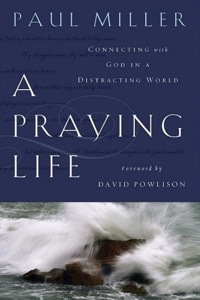I’ve two pressing matters uppermost on my mind today. The first derives from a book I’m reading. I posted earlier that I was enjoying this book. Now, all of a sudden, I’m not enjoying it anywhere near as much. The problem? Carnal Christianity versus Spiritual Christianity.
The passage of Scripture usually cited regarding this dilemma is 1 Corinthians 2.14–3.4, more specifically, verse 1-3 of chapter 3.
“The natural person does not accept the things of the Spirit of God, for they are folly to him, and he is not able to understand them because they are spiritually discerned. 1Corinthians 2:15 The spiritual person judges all things, but is himself to be judged by no one. 1Corinthians 2:16 “For who has understood the mind of the Lord so as to instruct him?” But we have the mind of Christ.
1Corinthians 3:1 But I, brothers, could not address you as spiritual people, but as people of the flesh, as infants in Christ. 1Corinthians 3:2 I fed you with milk, not solid food, for you were not ready for it. And even now you are not yet ready, 1Corinthians 3:3 for you are still of the flesh. For while there is jealousy and strife among you, are you not of the flesh and behaving only in a human way? 1Corinthians 3:4 For when one says, “I follow Paul,” and another, “I follow Apollos,” are you not being merely human?” (1 Corinthians 2:14–3:4 ESV)
The author of the book takes these verse to imply that there are three types of people: non-Christians, carnal Christians and spiritual Christians. Obviously, the non-Christians are the ones more accurately described in 2.14 – “The natural person does not accept the things of the Spirit of God, for they are folly to him, and he is not able to undestand them because they are spiritually discerned.” This one is relatively easy: a person without the Spirit of God is an unbeliever. No debate here.
The problem arises in 3.1-3, where Paul speaks of those who are fleshly, or “of the flesh.” Clearly, they are believers. Paul addresses them as “brothers” and he never does this for non-believers. Yet his concern for these “believers” is that they are acting like babies, “infants in Christ.” They’re not ready for solid teaching, but still “drinking milk,” even thought by now they should be well past that (that’s the tone of his remarks in 3.2).
My question for Mr. Baker (who is very clearly a student of L. S. Chafer and his “He Who Is Spiritual” teaching is this: how long can one be considered a “carnal Christian”? Does he ever “grow up?” And what if he doesn’t? What if a “carnal Christian” dies in this state of “carnality?”
In order to preserve your attention on this matter and not get lengthy here, I’ll keep a running post on this matter. I’ll also be posting a review of the book, Spiritual Maturity early next week (most likely on Monday; that’s my book review day).
Let me return to my opening: I stated that I had two problems that were uppermost on my mind. The second is a more pragmatic matter – How does the leadership of a church motivate said church to pray together? On the one hand, I’m sure some would simply say, “Lay out the commands that we should pray. Let them feel and sense their disobedience.”
I could do that, but my elders and I knew we’d appear like Moses descending from Mt. Sinai, with tablets in hand and a new 11th commandment inscribed upon them, “Thou Shalt Pray Together or your prayers won’t count.” That might work for a few people and it might work for a short time, but it hardly creates genuine pray-ers with a heart’s passion for seeking God.
On the other hand, we could just let grace rule and hope for the best. However, the struggle I have with that approach is this: that’s where we’re at now and I don’t think it’s biblical or helpful.
So there must be another hand here somewhere. I’ll leave you with this quote and address this issue at another time very soon:
Francis Schaeffer once asked his wife:
“Edith, I wonder what would happen to most churches and Christian work if we awakened tomorrow, and everything concerning the reality and work of the Holy Spirit, and everything concerning prayer, were removed from the Bible. I don’t mean just ignored, but actually cut out—disappeared. I wonder how much difference it would make?” We concluded it would not make much difference in many board meetings, committee meetings, decisions and activities.
—Edith Schaeffer, The Tapestry: The Life and Times of Francis and Edith Schaeffer (Waco: Word, 1981), 356.
Technorati Tags:
Bruce Baker, Christian Growth, Grace Acres Press, Spiritual Maturity, Prayer, Spirituality, Spiritual Transformation, Carnal Christian, Spiritual Christian, Francis Schaeffer, Congregational Prayer
Filed under: Belief/Unbelief, Christian Character, Grace, Prayer | Tagged: Bruce, Carnal Christian Living, Christian Growth, Congregational Prayer, Francis Schaeffer, Grace Acres Press, Prayer, Spiritual Christian Living, Spiritual Maturity | Leave a comment »


 I’m reading a wonderful book entitled,
I’m reading a wonderful book entitled,